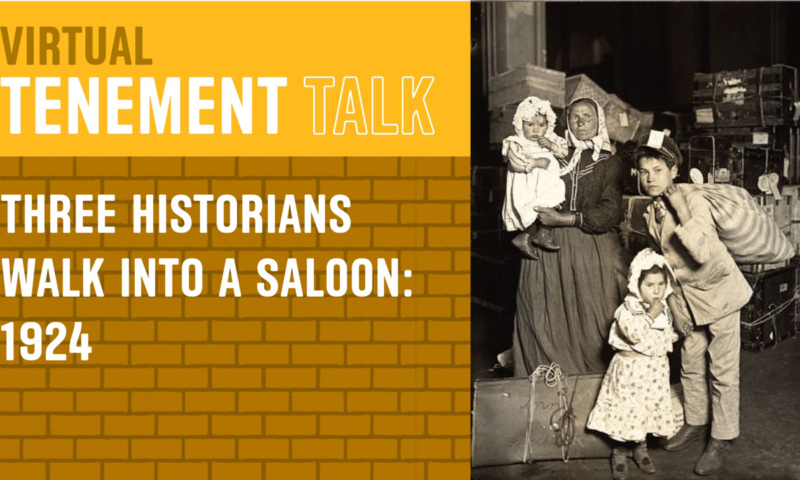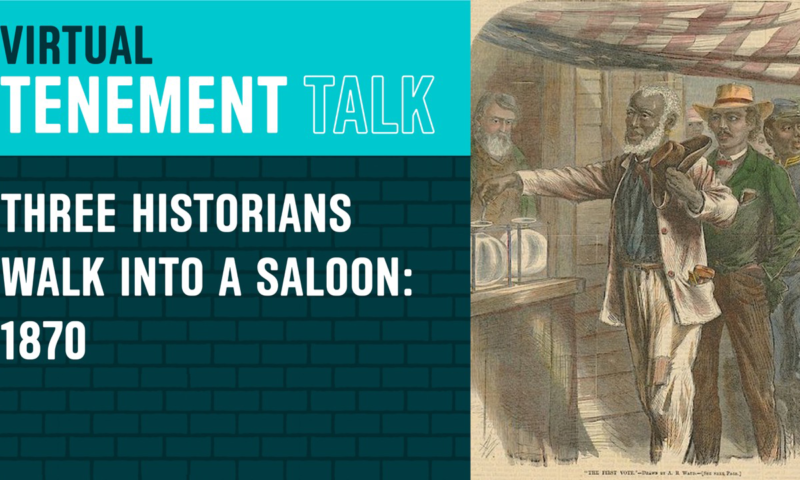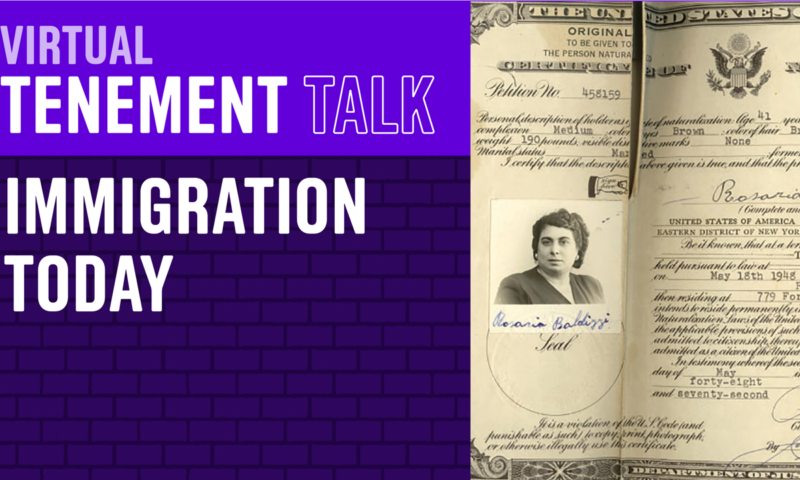Three Historians Walk Into a Saloon is a three-part virtual Tenement Talk Series. Set in our 19th century recreated lager beer saloon, where tenement dwellers gathered to read newspapers and debate the headlines, this series features today’s leading historians reliving some of the topics discussed long ago and delving into important turning points in our country’s history.
Award-winning historian Mae Ngai, Professor of History and Asian American Studies at Columbia University, hosts a rotating set of colleagues for rousing conversations about how immigration and migration help us understand the sweep of American history at critical moments, including the Civil War, the industrialization and urbanization of the late 19th century, and the emergence of the US as a global power after World War One. In a recent Atlantic article, Professor Ngai observed: “Americans are still struggling over competing versions of what this country should be.”
This series looks at past debates in the hope that analyzing past struggles will help shed insight on today’s questions.


